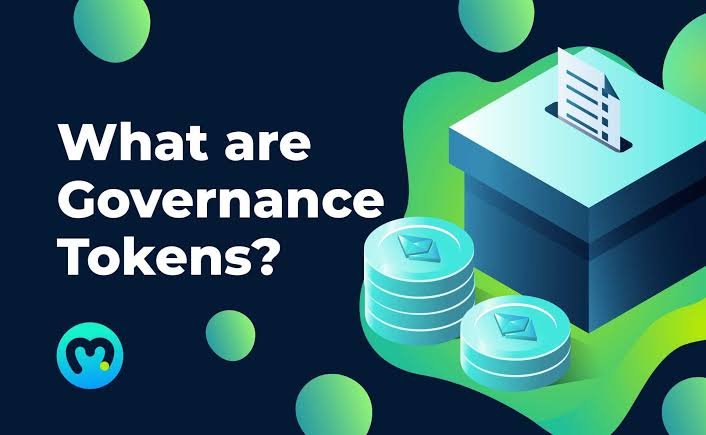The impact of the governance token
Governance tokens are an important part of decentralized finance (DeFi) and decentralized autonomous organizations (DAOs). They provide a way for holders of a token to have a say in the direction and management of a project, rather than relying solely on a central authority or group of developers. This can help to create a more transparent and democratic process for decision making, and can also align the interests of token holders with the success of the network or organization.
Holders of a governance token typically use their tokens to vote on proposals that are submitted to the network or organization. These proposals can cover a wide range of topics, including changes to the protocol, the allocation of funds, or the selection of new members to a governance council. The process for submitting and voting on proposals can vary depending on the specific network or organization, but generally requires holders to stake their tokens as collateral in order to vote.
The value of a governance token is often tied to the success of the underlying network or organization. As the network or organization grows and becomes more successful, the value of the governance token may also increase. This can create an incentive for holders to vote in ways that promote the growth and stability of the network, rather than pursuing their own short-term interests.
Governance tokens are still a relatively new concept and the market is still evolving. But it's becoming more and more popular in the crypto space as it allows community members to have a say in the direction of the project they believe in.
Another important aspect of governance tokens is the concept of token buyback and burn. When the network or organization generates revenue, a portion of it may be used to buy back and burn governance tokens. This can help to increase the value of remaining tokens, and can also help to align the interests of holders with the success of the network or organization.
It is also worth noting that governance tokens can also be used to create decentralized autonomous organizations (DAOs), which are organizations that are run entirely on blockchain technology and are controlled by holders of the governance token. DAOs are decentralized and transparent, and allow for community members to make decisions collectively. These organizations may also use smart contracts to enforce rules and automate certain processes.
One of the key advantages of DAOs is that they allow for a more democratic and decentralized decision-making process, as opposed to traditional organizations where decision-making is centralized and controlled by a small group of individuals or stakeholders. This can lead to more efficient and effective decision-making, as well as a more engaged and invested community.
However, it's also important to be aware that DAOs and governance tokens are still a relatively new and experimental technology, and there are still many unknowns and challenges that need to be addressed. For example, it's unclear how well DAOs will be able to handle disputes or deal with malicious actors. Additionally, the regulatory environment for DAOs and governance tokens is still in flux, and it's unclear how governments and regulators will respond to this new type of organization.
Overall, governance tokens and DAOs are a fascinating and exciting development in the world of blockchain and crypto, and have the potential to democratize decision-making and create more transparent and efficient organizations. But it's important for investors to be aware of the risks and challenges associated with this new technology before investing
Posted Using LeoFinance Beta
